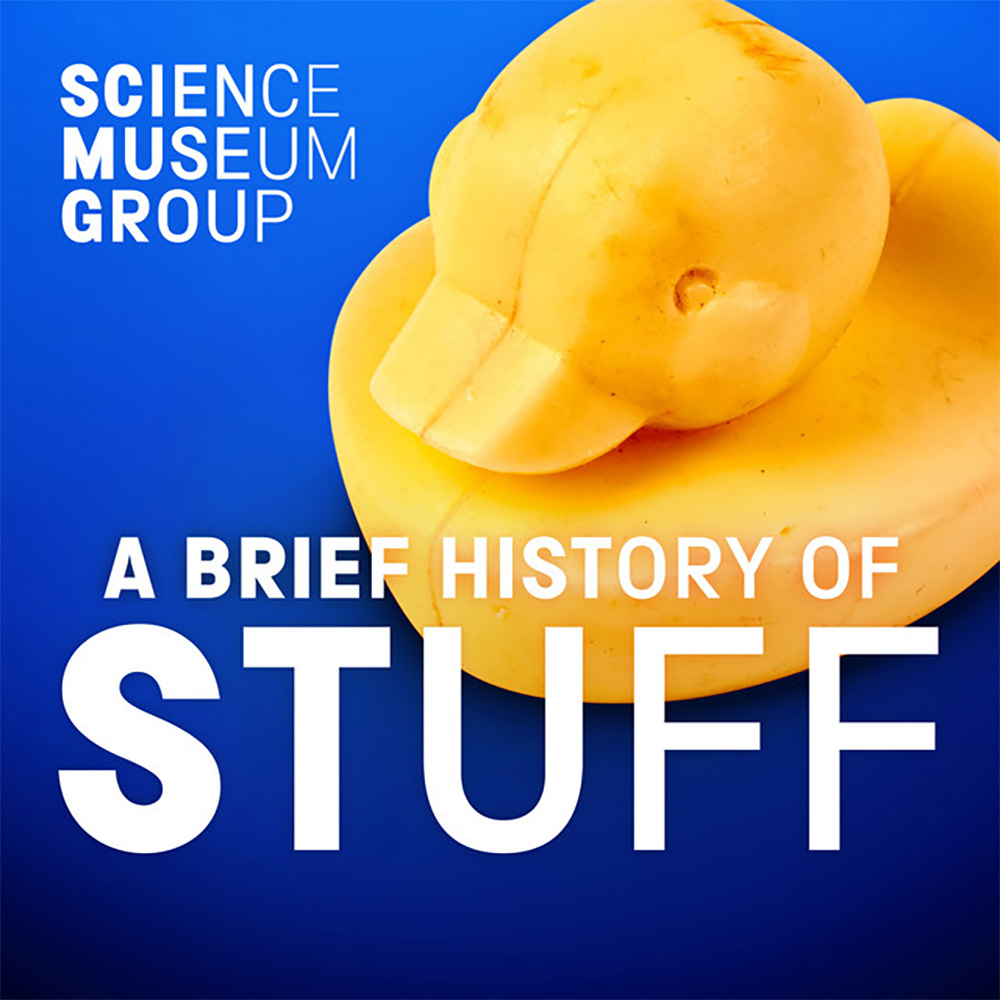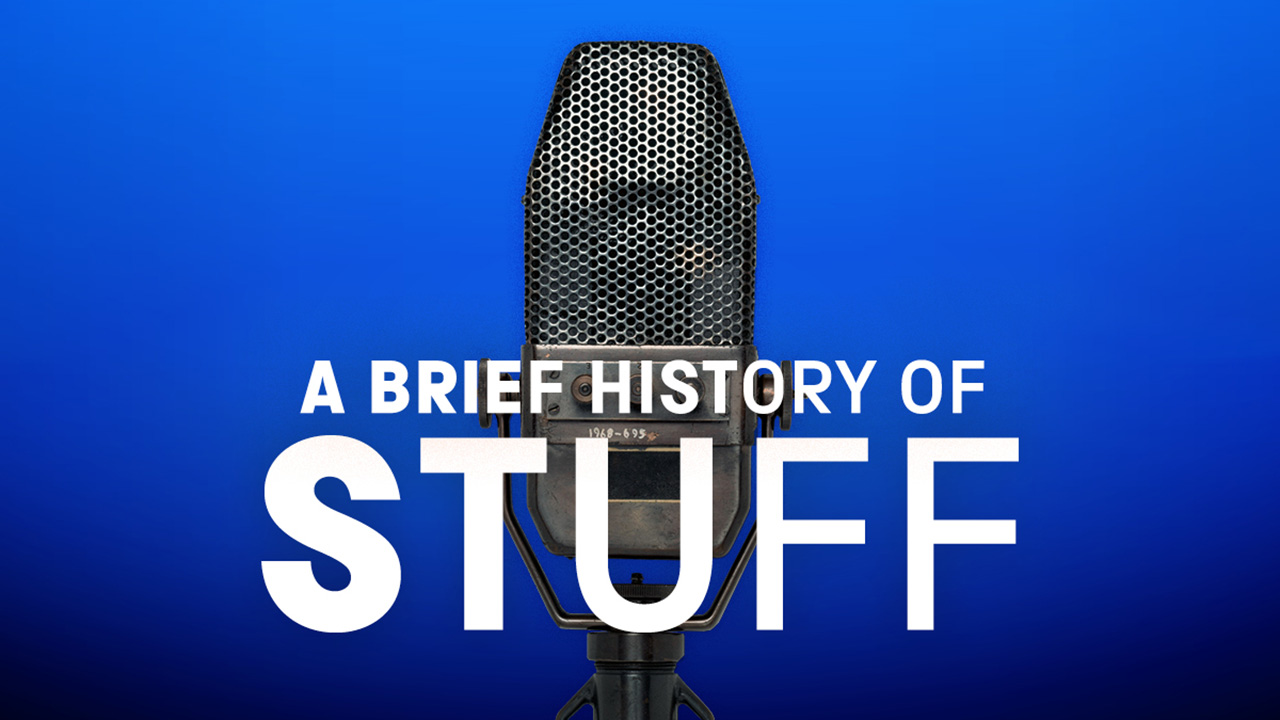Before 2020, no one would have predicted that the key way people interact with museums — walking inside to view objects — would be taken away. But almost overnight, lockdowns compelled institutions to come up with new ways to keep audiences engaged. For the Science Museum Group (SMG) and its five museums across England (including London’s Science Museum and York’s National Railway Museum), this meant pressing ahead with their first-ever podcast.
A Brief History of Stuff was launched in May 2020. With high production values and a celebrity host (BBC radio presenter Nihal Arthanayake), the series features curious stories about ordinary things found in the home, including bath toys, sticky tape, vacuum cleaners, and microwave ovens. It’s all inspired by the Science Museum Group Collection, a vast and varied collection of 7.3 million items that illustrates the impact of science, technology, engineering, and medicine on people’s lives. Episodes are released fortnightly.

Image: Science Museum Group
For SMG, the lockdown accelerated an idea that had predated the pandemic. It was already embarking on a major program to increase access to and engagement with some of the thousands of items not on display, as part of the ongoing relocation of stored objects from London’s Blythe House to a new purpose-built facility in Wiltshire. The idea for a podcast had been mooted early on as a way of talking about these fascinating but largely unseen objects, while capitalizing on the growing popularity of the medium. According to research from Radio Joint Audience Research, which measures radio audiences in England, almost a quarter of the UK adult population — over 10 million people — listened to a podcast each week in 2020. In America, one-third of the 330 million citizens are regular listeners.
“The pandemic provided the incentive to put the wheels in motion,” Will Stanley, Collection Communication Manager at the Science Museum, tells Jing Culture & Commerce. “With our five museums closed for many months, the podcast gained importance as a way of sharing our collection with a global audience.”
Despite the barrier to entry being very low for podcasting, it takes a lot of time and skill to create a quality product. SMG didn’t have the expertise or resources to produce a major podcast in-house, so they hired Storythings, a content production and storytelling company, as a co-producer. Along with the technical aspects of recording and editing, Storythings helped hone the format and provided advice on the podcast-making process. It meant that museum staff could focus their efforts and skills on sourcing guests, drafting scripts, marketing, and more. SMG’s expert curators researched and shared the all important stories.

A tape dispenser (left) and a Hoover Constellation vacuum cleaner (right) are just two objects that have inspired episodes of A Brief History of Stuff. Images: Science Museum Group Collection © The Board of Trustees of the Science Museum
Another challenge was how to stand out in an increasingly crowded market. Lockdown saw a number of other museums launching their own podcasts, including big beasts such as the Natural History Museum and National Museums Liverpool. For Stanley, the collection was key to making sure they could put a distinct SMG stamp on the format. “Using the internationally significant collection as the basis and inspiration for the stories brought a fresh perspective, and enabled us to create something unlike any other science podcast around.” The addition of ordinary voices, such as a beachcomber and an air traffic controller, also offered context on how specific objects are used today, an often overlooked part of an object’s story as museums tend to gravitate towards the past.
The show has already enjoyed a great response from listeners. “We’re delighted,” Stanley says. “We’ve had thousands of downloads of the five episodes we’ve published so far.” Further episodes from this first series are still to come, although a second series has yet to be commissioned.
But what would they say to other museums thinking about starting a podcast? It’s “a big challenge,” warns Stanley. “It’s been a huge commitment in terms of time to produce the episodes before even getting to the aspect of recording and making, as well as promoting it.” His advice is to read as much as you can about the medium before you even begin recording. “Hannah Hethmon’s excellent book Your Museum Needs a Podcast springs to mind.”
Maxwell Blowfield is currently Press Officer at the British Museum. A passionate believer that museums can enrich lives, he is dedicated to strengthening dialogue with audiences. Find him on Instagram and Twitter @maxwellmuseums.



